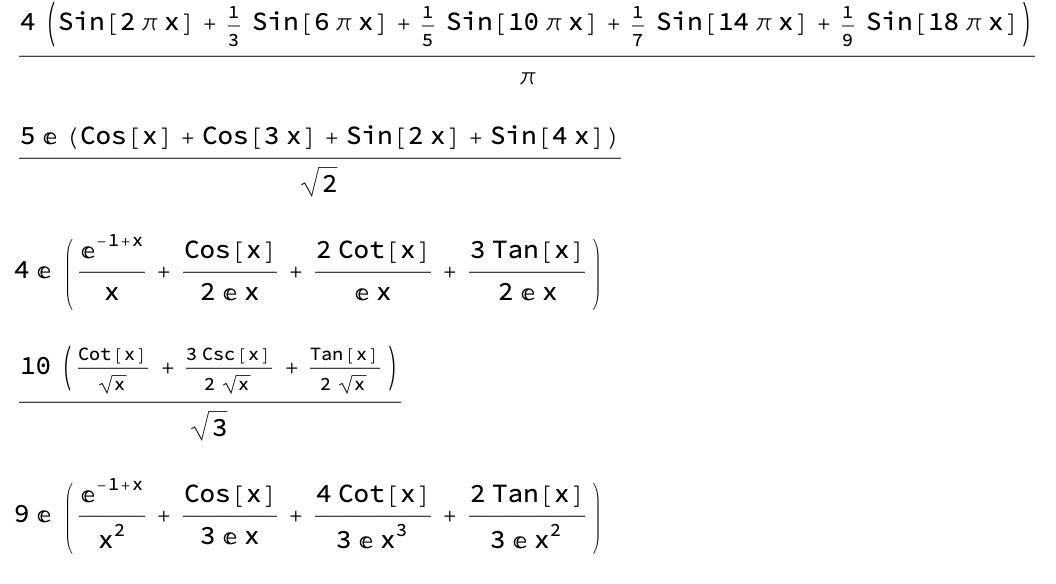I would like to automatically extract the same factor of each term, and thus write a sum such as:
$$\frac{4 \sin (2 \pi x)}{\pi }+\frac{4 \sin (6 \pi x)}{3 \pi }+\frac{4 \sin (10 \pi x)}{5 \pi }+\frac{4 \sin (14 \pi x)}{7 \pi }$$
as
$$\frac{4}{\pi} \left( \sin(2 \pi x) + \frac{1}{3} \sin(6 \pi x) + \frac{1}{5} \sin (10 \pi x) + \frac{1}{7} \sin (14 \pi x)\right)$$
My goal is to have Mathematica find the factor (here $\frac{4}{\pi}$) automatically (not "by hand") and then perform the manipulations.
I've tried Factor, DivideBy, and several algebraic manipulation functions, but nothing works smoothly or fully automatically in such cases. Together is almost appropriate, but not quite.
Here's code for the above:
(4 Sin[2 π x])/π + (4 Sin[
6 π x])/(3 π) + (4 Sin[10 π x])/(5 π) + (4 Sin[
14 π x])/(7 π) + (4 Sin[18 π x])/(9 π)
At @Nasser's request, here are a few similar made-up cases (in minimal form):
(5 E)/Sqrt[2] Cos[x] + (10 E)/(2 Sqrt[2]) Sin[2 x] + (15 E)/(3 Sqrt[2]) Cos[3 x] + (20 E)/(4 Sqrt[2]) Sin[4 x]
2/x Cos[x] + 4/x Exp[x] + 6/x Tan[x] + 8/x Cot[x]
5/Sqrt[3 x] Tan[x] + 10/Sqrt[3 x] Cot[x] + 15/Sqrt[3 x] Csc[x]
3/x Cos[x] + 6/x^2 Tan[x] + 9/x^2 Exp[x] + 12/x^3 Cot[x]




FullSimplify? If that's not good enough, you can try to tweak theComplexityFunctionto favour smaller integers more strongly $\endgroup$